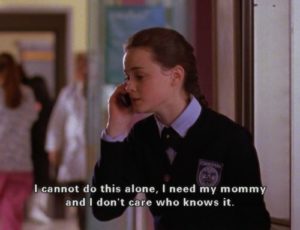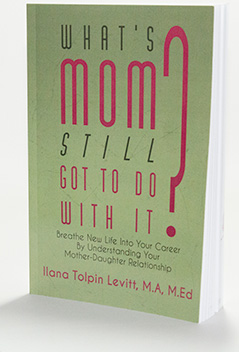 “I cannot do this alone, I need my mommy and I don’t care who knows it!” – Rory Gilmore Gilmore Girls
“I cannot do this alone, I need my mommy and I don’t care who knows it!” – Rory Gilmore Gilmore Girls
In our culture, we see one of two mother-daughter stereotypes constantly portrayed in the media; the Über-close best friend duo, or the enemies constantly pitted against one another. One of the most iconic mother-daughter relationships from pop culture is the relationship between Rory and Lorelai Gilmore, painted as “best friends,” while on the flip side of that is Lorelei’s contentious relationship with her own mother, Emily.
But what about the rest of us?
Most of us don’t see our relationships with our mothers represented in one of those two extremes, and instead experience an array of interactions from joyful to painful, and everything in between. Our culture tends to promote this glorified version of the mother-daughter relationship, and when our own relationships fall outside of that trope, we feel shamed.
Shame is a dangerous emotion. It is different than guilt. Guilt has us apologizing after making a mistake, while shame has us apologizing for being a mistake. When we are afraid not just of doing something wrong but of being wrong (bad/unlovable/not enough), we tend to hide our authentic selves from the world.
When we hide the truth of our wonderful, crazy, intense, beautiful relationships with our mothers from the world, we also tend to hide the truth of those relationships from ourselves. Once that avoidance of truth is established, it extends from the mother-daughter relationship to other areas of our being as well.
So what’s mom still got to do with it?
When we avoid the truth, we set ourselves up to fall prey to unconscious habits and patterns that shape the way we see ourselves and the world, which can lead to a reactionary way of being. Many of the obstacles women face in the workplace have to do with unconscious patterns established between mother and daughter, played out on the stage of the office.
So what is the antidote to shame? According to author and researcher Brene Brown, the antidote to shame is empathy. “The two most powerful words when we’re in struggle: me too.”
Want to develop a new way of responding to work challenges rather than reacting? Start by talking about the mother-daughter relationship…all 32 flavors and more.
Our relationships with our mothers are fluid, indefinable, and too dynamic to be reduced to a pop culture trope. I invite you to let go of those ideals and join other women in exploring how your relationship with your mother shapes your reality.
In my book, What’s Mom Still Got To Do With It, I explain some of the many ways in which our relationships with our mothers influence our careers, including tips on how to shift what isn’t working.
Join the conversation.


